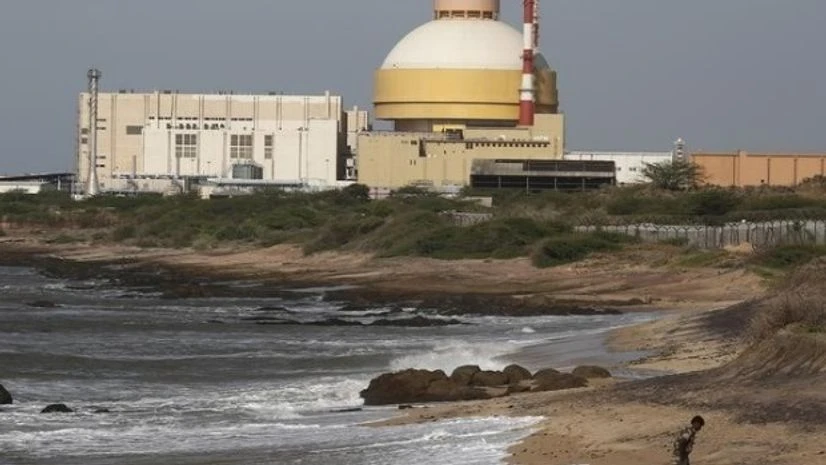Upcoming nuclear reactors at Kudankulam will see greater degree of indigenisation, according to the site director at the plant.
The first unit (1000 Mw) of the Kudankulam Nuclear Power Plant (KKNPP) was dedicated to the country on Wednesday, which is a major milestone in India's nuclear power journey. The project saw substantial delay in commissioning due to local protests, which have increased the cost manifold.
| NUCLEAR POWER |
|
"That's all history now," says KKNPP Site Director R S Sundar. Speaking to Business Standard, he said that while Unit-II will commence power production, ground work and negotiations for four more units with 1000 Mw each have started and there would be more indigenisation.
The original estimated cost for KKNPP's Unit-I and II was around Rs 13,000 crore but it was increased to Rs 22,000 crore due to delay in commissioning of the project. It may be noted, the Indian government signed a contract with the Soviet Union to build the plant in 1988, but construction started only in 1997 due to political and economic upheaval in Russia after the collapse of the Soviet Union in 1991.
The construction of the first two units was later halted in September 2011 following protests by villagers, who are mainly fishermen around the plant. Work at the plant finally resumed in March 2012, after the intervention of the state government and initiatives, mainly awareness creation, taken by the KKNPP to educate the villagers.
Also Read
On July 13, 2013, power generation started initially.
Sundar said that from October 2013 to August 11, 2015, around 10,800 crore million units of power was produced from Unit-I. He added that on July 10, 2016, Unit-II attained criticality. Subsequently, a few test reports were submitted and they have been cleared. KKNPP has now sought clearance for production, which may start at the end of this month.
For Unit-III and IV, soil excavation was started early this year and construction is expected to start in April 2017. From then, it would take around 69 months to start power production in Unit-III. By 2022-2023, power production would commence in both these units. "Total project cost is estimated to be around Rs 39,000 crore," said Sundar.
He added that orders have already been placed for reactor and other major components. He noted that in Unit-I and II, indigenisation is literally nil, but the upcoming units will see more indigenisation since Indian engineers and industries possess the capability now.
Reactor components and major components are coming from the Russian federation and orders have been placed already. However, conventional equipment like switch yard, cooling water side, compressors, and chillers are being designed by and procured from Indian industries.
"Bidding might be international, but there is a large probability that Indian companies can meet our requirements. In terms of the design portion, almost 30 per cent would come from our side. However, in terms of components, we can say only after procurements," said Sundar.
He noted that the team got some valuable experience – in terms of civil construction and equipment erection – from Unit-I and II. These components were erected by the local team with active support from the Russian team.
"It is not only (the learnings) for us, even the Russian team has learnt lot of things since there are many new things, which are first time in the World, in Unit-I and II. On similar lines of KKNPP, a 1200 MW reactor was constructed in Russia. It is exactly like KKNPP," he said.
"For Unit-V and Unit-VI, negotiations are in progress," said Sundar.
Sundar claimed that the locals have understood the nuclear technology and they have started seeing how the technology can bring progress in their life. "The outreach programme and communication, which were lacking during the initial phase of the project, have substantially helped and KKNPP would continue to undertake these initiatives," said Sundar.

)
